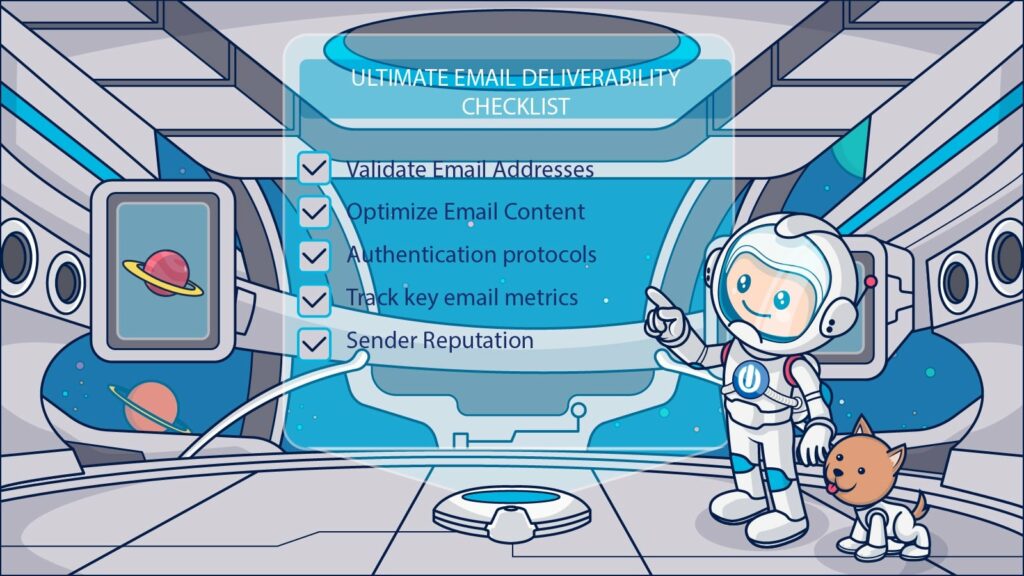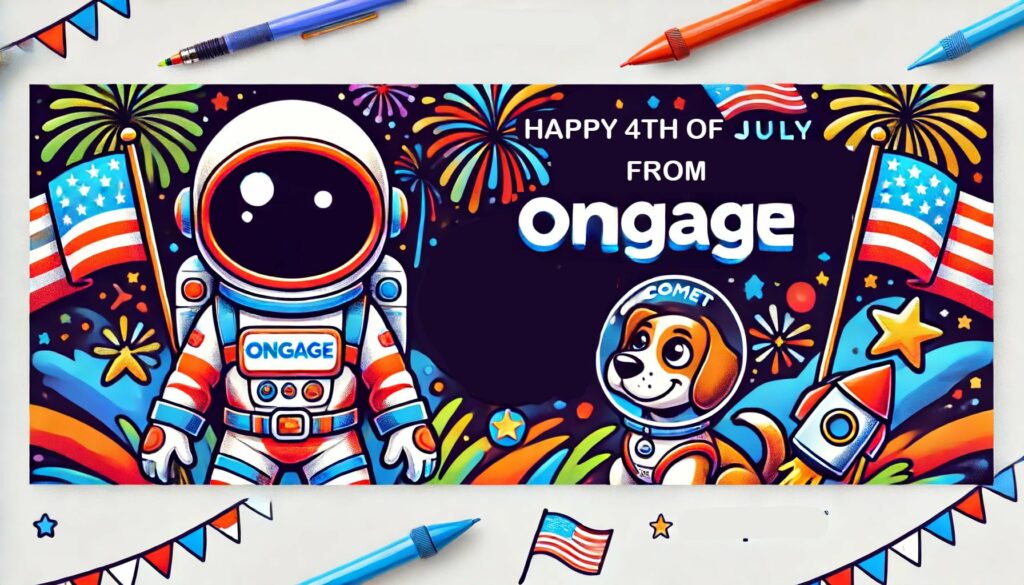8.4% of email addresses collected via websites are invalid. Sending to them can be devastating. Email list validation can help minimize this number while improving your deliverability and ROI. Here’s how.
It’s a tale as old as time – an email marketing campaign launches after weeks (maybe months!) of planning, and it falls flat. How did this happen? The design team ensured the creative was optimized for deliverability, best practices were followed for send time and date, but it still missed the mark.
With a quick look at the analytics, a larger-than-expected number of spam complaints and bounces paired with low engagement rates reveal the answer – you were, yet again, let down by your email list, and perhaps, email hygiene practices.
We all experience struggles with bad data lurking in our CRMs and negatively impacting our email marketing campaigns, that’s why email list validation is so important to your digital marketing program.
Doesn’t everyone validate their email lists?
While validating a contact list seems like a reasonable step any smart marketing team would make, it might surprise you to find out that very few companies actually implement email list validation in their marketing programs. When something as simple as email list validation goes missing from the vast majority of email marketing plans, it’s easy to see how even a simple campaign can return less-than-stellar results.
Why does this matter?
With the total number of global email accounts in 2019 reaching 3.9 billion and set to reach 4.48 billion accounts in 2024, it’s becoming critical that email marketers pay attention to the health of their databases. Truth be told, marketers simply can’t afford to have their messages go unseen!
Sooner than later, it will become too costly to house invalid, fake, or spam traps (toxic) email addresses, and can anyone really afford for their marketing budget to be cut even further?
Probably not.
Overall, 8.4% of email addresses entered on websites are invalid, fake or misspelled – this number might seem small (it is single digits, after all) but even that 8.4% is detrimental.
How does email list validation save the day?
Setting aside a little bit of your budget for a recurring email list validation investment will work wonders in mitigating the following email marketing challenges:
High bounce rate
As a quick refresher, a bounce occurs when an email does not reach an inbox, or, in email marketing terms, is undeliverable. Email bounces can be hard (permanent) or soft (temporary) – and your bounce rate refers to the ratio of bounces to sent emails.
While you can sometimes attribute soft bounces to full inboxes, hard bounces will never be deliverable, and therefore simply take up useful space in your email list. Validation is critical as it identifies and removes these email addresses from your list, improves sender reputation, and creates room for more deliverable email addresses in your CRM.
High spam complaint rate
Spam complaint rate simply refers to the ratio of spam complaints to sent emails. A high spam complaint rate is exactly what you don’t want to happen, as these squeaky wheels impact your sender reputation and make it more difficult to get your email to the inbox!
The goal for any email marketing program is to have a spam complaint rate of less than 0.1% – this means that for every 5,000 email messages, there should be less than five spam complaints. Validation identifies and removes frequent complainers from your list, thereby ensuring your spam complaint rate steadily declines.
Toxic data
Toxic data refers to any email address that has the potential to damage your email deliverability. How can they damage your deliverability? Essentially, if you email a hazardous account enough times, this can put your domain right on an ISP’s blacklist.
Good email list validation services use suppression files to help alleviate spam trap problems, known complainers, and opt-outs from third-party messaging.
Poor sender reputation
High spam complaint rates and toxic data directly impact your sender reputation. And if you have a poor sender reputation, reaching the inbox and keeping deliverability high is nearly impossible. Email list validation alleviates this issue by identifying and removing risks and roadblocks to great sender reputation.
Low email marketing ROI
Measuring email marketing ROI makes all the difference for your program’s budget and buy-in from leadership, but what if your ROI is a bit lower than you’d like? Email list validation takes away some of the headaches and improves your ROI by removing the risk of sending to spam traps, invalid email addresses, and inactive inboxes.
How do different industries use email list validation?
Now that we’ve covered the basics, it’s time to take a look at email list validation in action for a few different industries: Retail/B2C, FinTech, and B2B.
Retail/B2C
The Retail and B2C industry is the primary example of email list validation’s effectiveness. There are a number of different points of sale for retail and B2C: online, in-store, in-app, etc. Each of these points-of-sale requires data entry from a human being, and as we all know, humans are prone to error.
Whether it’s fat-fingering data entry on an app or mishearing an email’s spelling in a crowded store, erroneous data entry is common. Validation helps detect and correct these data entry errors to ensure those follow-up offers and coupons based on purchase or website activity reach the inbox.
Reviewing retail ROI
Another key component of retail and B2C is accurate attribution and understanding the cost of an email marketing program. This can feel particularly overwhelming due to the number of variables that affect it, including advertising and direct mail, and their price tags.
Messy data can mess up your results – email list validation ensures campaign data across all marketing channels is clean, accurate, and that it positively impacts your final ROI.
Validation improves personalization
For example, one of Grubhub’s most successful email campaigns sends various food delivery emails triggered by different weather conditions to each of its subscribers’ locations. To say clean data and accuracy make a difference here is an understatement. Without valid emails in a database, Grubhub could not successfully determine location, weather, nor what cuisine the individual might be interested in!
Campaigns like Grubhub’s are a common email marketing initiative, especially given the fact that personalized offer emails make up about ⅓ of all marketing emails. How can an invalid email address provide further insights into key behavioral and demographic data? Clean data makes personalized campaigns possible.
Lead nurture like a pro
Did you know that 57% of email marketers consider lead nurturing a key strategic goal in their total marketing programs? It might be part of your plans, but lead nurturing can only be successful if you’re reaching real inboxes.
Validation is key for successful lead nurturing programs because, at the end of the day, you can only nurture a lead if you’re reaching a real inbox connected to a real human. Retail and B2C require continual validation from point-of-sale through the lead nurturing stage as marketers send personalized offers to customers and work to improve ROI.
Finance/FinTech
In an industry that values security, integrity, and data safety, email list validation is a critical component for any email marketing program.
Don’t compromise database security
The last thing any FinTech organization wants to do is compromise data security, so how does validation help maintain the integrity of its database? Considering that FinTech is an industry where the potential for fraudulent or fake emails is much too common, validation is critical.
Syntax, style, and formatting are key indicators of email validity, according to FinTech experts. Therefore, investing in a high-quality email list validation service that scours your database and identifies emails with these indicators provides an extra layer of protection for your database and business.
Avoid the spam folder
At the same time, even valid email addresses can be difficult to reach. One of the biggest struggles for FinTech is falling victim to high complaint rates. Either the wrong offer reached the wrong person or maybe the email sounds a bit too knowledgeable about the individual.
Let’s be honest, we’ve all struggled to differentiate a legitimate bank email from financial spam that knows a little too much about us. Regardless, you don’t want your email campaign to trigger high spam ratings and inhibit your deliverability.
Email list validation ensures you know who are the high complainers in your database and allows you to segment them out of the regular sending program. Maybe send them a personalized offer once a quarter regarding your financial institution or technology. Just keep in mind, make it personal but not so much that it sounds like a financial spam email.
Always remember that you’re paying to send emails, track the analytics, and get your financial institution or technology’s message in front of customers or prospects. You know more than most that every penny counts. Validation eliminates the risk of wasted money from sending messages to fake or toxic emails.
B2B/Professional
Why is it so difficult to get your message to a B2B inbox? Part of this is because, on average, a person will spend only 4 years at a specific company. This means the lifespan of a business email is generally much shorter than a B2C consumer email address associated with a free ISP.
Add to this the fact that email databases decay at an average rate of 22.5% per year, and you can see how maintaining a business email database requires a bit more time and money than other initiatives.
A quick tip: if you know for sure that an email was collected within the last two months, it is likely active. However, while recency is a great way to tell if an account could be active, it doesn’t guarantee validity. This is why continual email list validation is critical in the B2B space.
Validation is cost-effective and boosts ROI
B2B email addresses are the most costly to acquire for any organization. Driving traffic to your website requires major time and monetary investment outside of email marketing, often including advertising, paid partnerships, and direct mail programs.
Email list validation isn’t only worthwhile to ensure you’re reaching real inboxes, but it’s also pretty easy to do when all it takes is uploading a list or validating right on your web forms in real-time.
Your ROI is a critical component of any well-oiled marketing machine, but it can be difficult to accurately attribute sales or conversions to email marketing with messy data. To ensure your investment is well-spent, a little bit of quick math illustrates just how you can gain $750 for every dollar spent to validate emails.
When is it time to validate?
So if email list validation is an integral component for B2B email marketing success, how do you know when to validate your B2B list if you’re not using real-time validation? If you haven’t validated it in over a year, it’s definitely time to add it to your to-do list, but a few other signs include:
- High bounce rate.
- Low open rate.
- Poor engagement and click-throughs.
- Mailing to an old list for the first time.
It’s never too late to validate
The last thing you want to do is send an email campaign to your database that you’ve worked tirelessly on for weeks at a time only for it to flop because of dirty data. Invalid, toxic, and erroneous email addresses can break the bank for an otherwise stellar campaign, reduce your long-term deliverability, and make a not-so-great impression at your next marketing meeting.
Email list validation is an easy step that any business in any industry can take to not only catch but also correct bad data entry. It supports attribution, boosts ROI, and will power personalization in your upcoming campaigns.

















